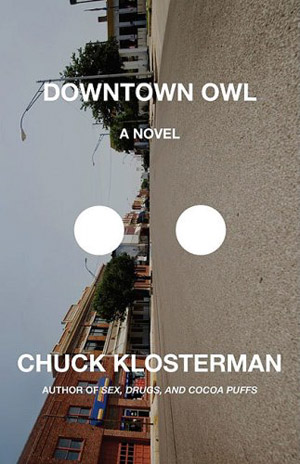
I have finished 3/18 of my Power Year reading list. I was already halfway through my second reading of the 6th Harry Potter book when I turned 31, so I don’t know if it officially counts since I started it way back when I was 30. But I read the final 300 pages or so when I was snuggled up at the coast on my birthday weekend, oblivious to the cooking, Scrabble, and beer consumption surrounding me as I shed tears all over again for dear Dumbledore and the children who must now move through the magical world with neither protection nor guidance. Just thinking about it now makes my chest tighten up! And no, dyslexic readers, you did not misread my age. I am 31, not 13- YA fantasy enthusiasm to the contrary.
But I have indulged in more adult fare in the past two months as well. You may recall that I asked two of my most literary pals to give me reading lists for this Power Year. Joan’s list is full of challenges; knowing my Year is a means of pushing myself- creatively, intellectually, physically- she chose 6 books of varying genres and themes that ask something of the reader. None of them, as far as I can tell, can or should be read cover to cover on a cloudy afternoon. They require time- between chapters, poems, essays- to digest, reflect, discuss. A slightly intimidating list, to be sure, but well considered.

I started, at Joan’s suggestion, with Slouching Toward Bethlehem by Joan Didion (thus this friend’s pseudonym.) She knows my decade-long infatuation with the New Yorker, and my more recent love affair with Mr. E.B. White. In other words I swoon for a well crafted essay and Didion is a master craftswoman. This collection was published in 1968 and kind of epitomizes the naivety, neuroses, restlessness and unease of the time. The essays I liked best were the most personal ones- the author falling in and out of love with New York, the relief she finds in being out of her 20’s, her fevered manifesto in support of self respect.
I was less satisfied with her topical essays, though the topics themselves were fascinating. She went deep, as a journalist, into the exploding drug scene at Haight/Ashbury, the pure search for peace at Joan Biaz’s Institute for the Study of Nonviolence, and into the suffocating suburbs and delusions of the upwardly mobile white middle class. In these essays I felt that Didion’s own cynicism clouded her coverage. She comes across as fatalistic and judgmental; undermining her reporting by inserting her bias. (Her bias re: Baez? Hm.) What I love about the New Yorker is the ego-less curiosity that each contributor brings to his or or her subject (Denby and a few others being exceptions.) The magazine takes pride in methodical investigation and thoughtful analysis, inviting the reader to come to her own conclusions (though of course we are led there.) Didion it seems, attempts to remove the “I” from her journalistic pieces, but is unable to erase herself completely. It is often endearing- the alarm and pity she feels for the runaway hippies and their contemporaries- and would maybe not have been that noticeable if I hadn’t read so many of her essays back to back. By the end of the collection I felt that I had learned as much about the author as the subjects which was more and less than what I expected of the book. FWIW.

Carrots, my best friend since high school, is my other Curator of Books. Her list reflects her inside and out knowledge of me, my tastes, passions, weaknesses and interests. It’s like she packed me a delicious gourmet picnic and I CANNOT WAIT to eat it up. I started with Amy Bloom’s Where the God of Love Hangs Out. It’s a collection of short stories (though some of them sprawl to 3,5, 7 chapters) all dealing with the mundane but precious day to day grappling with aging, love, death, estrangement and reconciliation. I realize that description makes it seem like and Oprah Book Club Selection, but it’s so much subtler than that. The characters seem like people that might live across the alley from you or be friends with your favorite aunt. And though any given character may be coping with the death of a lover or the compulsive participation in an absurd affair; the stories linger on the preparation of supper or an insomniac’s cable TV stupor, making the greater drama seem quiet, private, and inevitable-seeming. THE NOBILITY OF THE EVERYDAY. That’s the phrase that keeps tugging at me here. I know I’ll be lending out my copy of this book for years.







